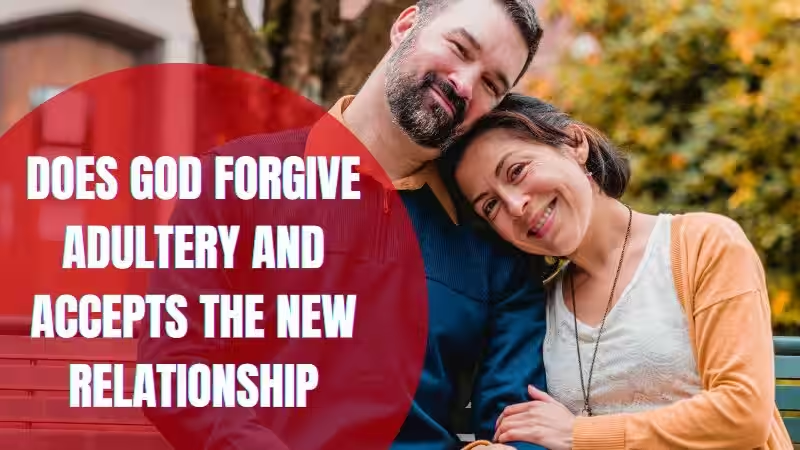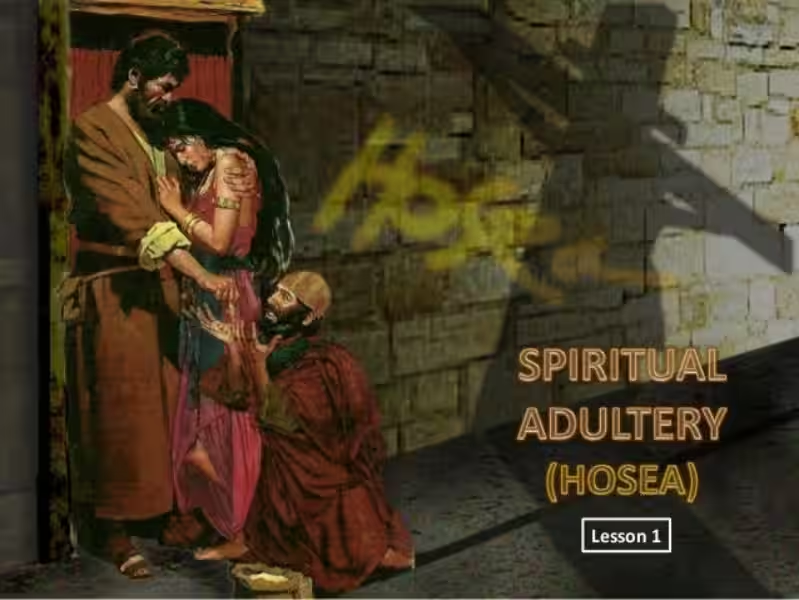Will God Forgive Adultery?

Adultery, a complex and often devastating act, raises profound questions about forgiveness, both from a human and divine perspective. The weight of this sin, its impact on relationships, and the possibility of redemption are central concerns for many who have experienced or contemplated infidelity. This article explores the theological perspectives surrounding the question, "Will God forgive adultery?", drawing on various religious teachings and emphasizing the importance of genuine repentance and personal responsibility.
The Gravity of Adultery and the Possibility of Forgiveness
Many religious traditions, particularly Christianity, view adultery as a serious transgression. It's not merely a physical act; it often represents a profound betrayal of trust, a violation of sacred vows, and a rejection of the commitment to fidelity that lies at the heart of a healthy relationship. This is especially true within a marriage, which is often viewed as a sacred covenant reflecting the union between God and his people.
The consequences of adultery can extend far beyond the immediate participants. Emotional scars, damaged trust, and fractured relationships often ripple outwards, affecting children, families, and communities. The pain caused by infidelity can be deep and long-lasting, requiring significant time and effort to heal. Understanding the profound consequences of this act is crucial in contemplating God's potential forgiveness.
Repentance: The Path to Divine Forgiveness
While the gravity of adultery is undeniable, numerous religious teachings emphasize God's boundless capacity for forgiveness. However, this forgiveness is not automatic; it is contingent upon genuine repentance. Repentance goes beyond simply feeling sorry; it involves a deep and sincere change of heart, a turning away from sinful actions and desires, and a commitment to live a life aligned with God's will.
This transformative process requires active steps towards reconciliation, both with God and with those harmed by the act of adultery. This may involve seeking professional help, engaging in restorative practices, and actively working to rebuild broken relationships. The focus shifts from seeking absolution for past actions to a fundamental change in character and behavior.
Exploring Biblical Perspectives on Forgiveness
The Bible, particularly the New Testament, offers ample teachings on God's forgiveness. John 8:3-11, the story of the woman caught in adultery, illustrates God’s willingness to forgive even in the face of significant transgression. However, this forgiveness is always coupled with a call to repentance and a commitment to a changed life.
The concept of grace and mercy is central to understanding divine forgiveness. Grace is the unmerited favor God bestows upon us, while mercy is compassion shown despite deserving punishment. God's grace allows us to receive forgiveness, even when we don't deserve it, enabling us to embark on a journey of healing and restoration.
The Role of Jesus Christ in Redemption
The sacrifice of Jesus Christ is fundamental to Christian theology on forgiveness. His death on the cross is seen as a payment for humanity's sins, offering a path to reconciliation with God. This sacrifice doesn't excuse the act of adultery, but it does provide the basis for God's forgiveness to those who genuinely repent.
Through faith in Christ, individuals can receive God's grace and experience the transformative power of his love, allowing them to overcome their past mistakes and live a life characterized by righteousness and spiritual growth. This transformative power is essential in addressing the deep-seated issues that may have contributed to the act of adultery in the first place.
Will God Forgive Repeated Adultery?
The question of whether God will forgive repeated adultery is more nuanced. Repeated acts of infidelity, without genuine and sustained repentance, raise concerns about the sincerity of the individual's commitment to change. While God's capacity for forgiveness remains boundless, the individual's persistent choice to commit adultery suggests a potential resistance to God's grace and a lack of commitment to a transformed life.
It is important to note that forgiveness is not a simple transaction. It is not simply about God erasing the past but about a transformative process of healing and restoration. Repeated acts of adultery may require a more intensive and committed approach to repentance, possibly involving professional counseling, spiritual guidance, and a sustained effort to address underlying issues driving the behavior.
The Importance of Seeking Guidance
Navigating the complexities of faith and forgiveness after committing adultery requires seeking guidance from trusted sources. This might involve talking to a pastor, priest, rabbi, or other religious leader, as well as seeking professional counseling or therapy.
These individuals can offer spiritual support, provide guidance on the process of repentance, and help individuals address the underlying issues contributing to their actions. They can provide a safe space for confession, accountability, and ultimately, healing. Remember, the journey towards forgiveness is often a process, requiring patience, perseverance, and a commitment to personal growth.
In conclusion, while the question of "Will God forgive adultery?" is a deeply personal one, the theological consensus emphasizes the importance of genuine repentance, a commitment to change, and seeking guidance from spiritual leaders and/or therapists. While God's capacity for forgiveness is boundless, the path to receiving that forgiveness requires active participation and a heartfelt desire for a transformed life. The focus is not solely on obtaining absolution for past actions, but on undergoing a complete transformation of heart and life, facilitated by God's grace. The question isn't just about God's forgiveness, but also about the individual's willingness to accept it and strive for a life of integrity and faithfulness.
Frequently Asked Questions: God’s Forgiveness and Adultery
Will God forgive adultery?
Yes, according to many religious perspectives, God's forgiveness extends to adultery. However, forgiveness is not automatic. It requires genuine repentance, which goes beyond simply feeling sorry. It involves a complete turning away from the sin, a commitment to righteous living, and seeking reconciliation where possible. God's forgiveness is rooted in His unwavering love and is demonstrated through the sacrifice of Jesus Christ. Biblical passages, such as John 8:3-11, illustrate God's capacity for forgiveness even in the face of significant transgression.
What does genuine repentance for adultery entail?
Genuine repentance is more than just regret. It's a complete renunciation of the adulterous behavior and a commitment to change. This includes:
- A deep understanding of the harm caused: Recognizing the pain inflicted on your spouse, family, and yourself.
- A sincere desire to change: A commitment to avoid repeating the sin and actively pursuing a life of fidelity.
- Seeking forgiveness: Making amends with those hurt, where appropriate.
- Seeking help: This may include counseling or therapy to address underlying issues that contributed to the adultery.
- A commitment to godly living: Striving to live a life that honors God's commands and values.
Does God forgive repeated adultery?
The possibility of forgiveness for repeated adultery remains, but it becomes increasingly complex. Repeated acts without genuine and sustained repentance indicate a lack of commitment to change. While God's love and forgiveness are boundless, repeated actions demonstrate a disregard for the consequences and the importance of the commitment made in marriage. It requires a deeper and more persistent commitment to repentance and seeking help to address underlying issues. The focus should shift from simply seeking absolution to undergoing a transformative change of heart and life.
What role does seeking help play in receiving forgiveness?
Seeking help, whether through spiritual guidance, counseling, or therapy, plays a crucial role in the repentance process. These avenues provide support, accountability, and tools to address underlying issues that contributed to the adultery. Professional help can assist in understanding the emotional and relational damage caused and developing strategies for healing, restoration, and preventing future transgressions.
What are the consequences of adultery, even with forgiveness?
Even with God's forgiveness, adultery carries significant consequences. The emotional and relational scars can be profound and long-lasting. Repairing damaged relationships requires time, effort, and commitment from all involved. The consequences may also include legal ramifications, depending on the circumstances. It’s important to understand that forgiveness doesn't erase the pain caused or automatically restore relationships. It signifies a path towards healing and restoration, but it's a process that necessitates active effort and commitment.








